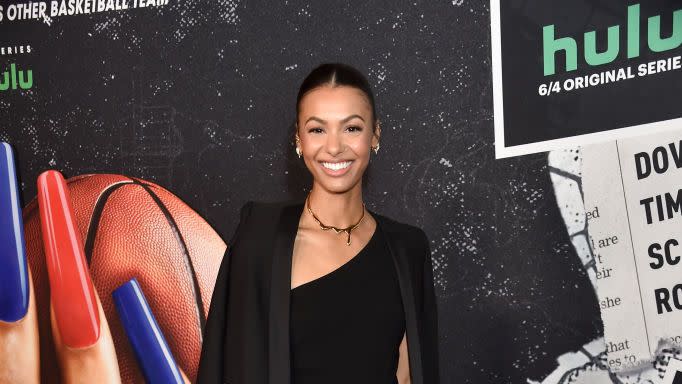ESPN's Malika Andrews Opens Up About Mental Health Struggles, Wilderness Therapy

ESPN reporter Malika Andrews has been dominating coverage NBA finals and was even the first woman to host the NBA Draft, a role she'll repeat later this month. But recently, the sportscaster, 29, opened up about her mental health, sharing that she went to a therapy program in Utah called Wingate Wilderness as a teenager.
After struggling with an eating disorder, self-harm, and depression, Malika embarked on a three-year journey away from home.
"I was clawing at ways to make sense of my anger,” she told People in an interview published June 12. “I didn’t know how to live in my own skin.”
Her absence was just as difficult for her parents, Mike and Caren. “It was like having our familial heart ripped from our body,” Caren told the publication. "It felt wrong living a life without our core four; it was a life of disequilibrium."
Malika has been thriving since she joined ESPN in 2018 at just 22 years old, and has since hustled her way to prime-time billing. “I feel so much pressure as a woman in a male-dominated industry to show up as my most perfect self,” Malika shared with the magazine.
But who are Malika's parents, Mike and Caren? Keep reading to learn more about Malika’s family and upbringing.
Her parents, Mike and Caren, raised her and her sister in Oakland, California.
Malika's parents, Mike and Caren, are the “best parents in the world,” telling People, “They did all they could to help me. There’s no bigger support system.”
Mike and Caren raised Malika and her younger sister Kendra in Oakland, California. Caren worked as an art teacher, while Mike was a personal trainer.
When she was a teenager, Malika was celebrated with a bat mitzvah since her mother is Jewish, according to the New York Post. As a biracial kid, Malika said she "stuck out like a sore thumb" in her predominantly white, private school, she told People.
Malika's younger sister Kendra, 27, also works as a journalist for ESPN, covering the Golden State Warriors. The two frequently interact in their news reports, including this hilarious April moment when Malika realized on-air that Kendra had taken her watch.
They sent her to wilderness therapy after she struggled with her mental health as a teen.
Malika had a challenging childhood, however. She started feeling intense feelings of anxiety and depression as a teen, she shared with the Post.
“It is not like x+y=z,” she said. “It was just a feeling that something was not right. I can’t explain it.” This led Malika to stop studying for school and eventually failing out of eighth grade.
After a scary trip to the emergency room where Malika was placed in a psychiatric hold, Mike and Caren got the recommendation to send their daughter to wilderness therapy. The program turned out to be a brutal, eleven-week program where troubled teens hiked up to 12 miles per day with a 50-lb. pack, building fire and shelter.
"They give you one roll of toilet paper and 10 tampons," she told People. "They give you dried beans, powdered milk, powdered cheese, dried pasta, rice, packets of tuna, dried tomatoes, a little thing of brown sugar, a little thing of dried oats, an apple, an orange. That's your food for the week."
She was then moved to an all-girls residential treatment center in Utah, per People.
Her parents’ passion inspired her current job as an NBA reporter.
After Malika returned from Utah, she didn't immediately go off to college, per the Post. She came back to Oakland to work at her grandfather’s civil rights firm for a year. Ultimately, Malika disliked the 9-5 cubicle life and felt inspired to be more like her parents, whose work was driven by passion.
From there, Malika began studying journalism at the University of Portland and becoming editor of the school paper. "Writing and sharing other people's stories is something I found a lot of purpose in when I went to college," she told People.
And although she calls mental health a "shape-shifting monster" that’s never really defeated, Malika finds support in her friends and family.
"I have a job I love, a partner I love, a life I love that’s worth fighting for,” she told the magazine. "That doesn’t mean that it isn't difficult a lot of days. I’m still finding my way."
You Might Also Like


